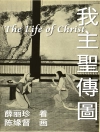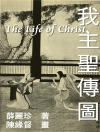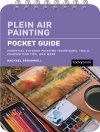This compelling new study considers contemporary painting’s relationship with time and with events, ideas and paintings from the past. Following French philosopher Jean-François Lyotard’s determination of painting as entailing a series of temporal sites, Painting, History and Meaning examines works that tendentiously engage with aspects and events derived from the past.
A unique examination of the relationship that contemporary painting has with history and historical material, Painting, History and Meaning is a timely response to, and discussion of, how contemporary painters and artists have addressed a significant area of concern for both practitioners and theorists in recent years.
Craig Staff explores art that has encompassed strategies of excavation, anachronism and memorialization, examining key works by artists including Dana Schutz, Tomma Abts, Gerhard Richter, Marlene Dumas, Johannes Phokela and Taus Makhacheva. A scholarly examination of contemporary painting through an innovative interdisciplinary research methodology, this fascinating study illuminates the complex relationship between painting and history.
Primary readership will be the fine art academic community, art and painting practitioners, scholars and academics. Will appeal to second and third year undergraduate and postgraduate students of fine art and art history. Of interest to students of cultural studies, history, curatorial studies and continental philosophy, and to those in the visual arts wanting to develop their understanding of contemporary art.
สารบัญ
Introduction
More Memory and More Future
Perpetuating Modernism
Of Absent Bodies
Painting Anachronistically
Re-siting Painting
Bibliography
เกี่ยวกับผู้แต่ง
Dr. Craig Staff is currently Reader in Fine Art at the University of Northampton, where he has worked since 2003, having completed his Ph.D. in Fine Art (Painting) at Nottingham Trent University and his MFA (Distinction) at the University of Ulster. In addition to having published on the intellectual histories of modernism, the broad focus of his recent research has considered how time is written into the work of art. His study Retroactivity and Contemporary Art, published in 2018 by Bloomsbury, considers contemporary art’s relationship with both history and historical materials. His next monograph, forthcoming on Intellect, seeks to examine the notion, following Jean-François Lyotard, that paintings function as ‘sites of time’.












